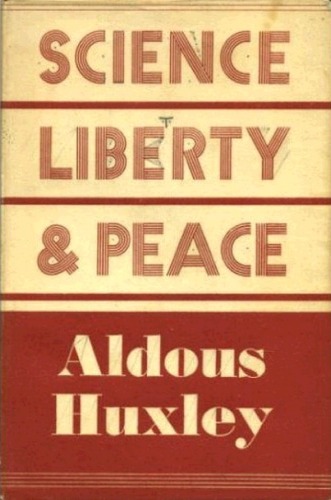

Most ebook files are in PDF format, so you can easily read them using various software such as Foxit Reader or directly on the Google Chrome browser.
Some ebook files are released by publishers in other formats such as .awz, .mobi, .epub, .fb2, etc. You may need to install specific software to read these formats on mobile/PC, such as Calibre.
Please read the tutorial at this link: https://ebookbell.com/faq
We offer FREE conversion to the popular formats you request; however, this may take some time. Therefore, right after payment, please email us, and we will try to provide the service as quickly as possible.
For some exceptional file formats or broken links (if any), please refrain from opening any disputes. Instead, email us first, and we will try to assist within a maximum of 6 hours.
EbookBell Team

0.0
0 reviews
ISBN 10: 0701116900
ISBN 13: 9780701116903
Author: Aldous Huxley
This is a book about one of the most important problems of our time—the problem of How to Make the Best of Both Worlds, the world of science on the one hand and, on the other, the world of total human experience, public and subjective, individual and cultural. This world of total human experience is the world that is (or at least ought to be) reflected and molded by the arts, above all by the art of literature.
"What is the function of literature," Mr. Huxley asks, "what its psychology, what the nature of literary language? And how do its function, psychology and language differ from those of science? What in the past has been the relationship between literature and science? What is it now? What might it be in the future? And what would it be profitable, artistically speaking, for a twentieth-century man of letters to do about twentieth-century science?"
Ours is the Age of Science; but from a study of the best contemporary literature one would find it difficult to infer this most obvious of facts. Contemporary poetry, drama and fiction contain remarkably few references to contemporary science—few references even to the metaphysical and ethical problems which contemporary science has raised. That this state of affairs should somehow be remedied is the theme of every recent discussion of "the Two Cultures." unfortunately most of these discussions have been carried on in abstract terms and with almost no citations of case histories, no references to the concrete problems of literary and scientific writing, no illustrative examples.
Mr. Huxley has approached the subject in a different way. He deals with specific questions in the fields of immediate experience, of conceptualization, of philosophical interpretation and of verbal expression; and he illustrates these wide-ranging themes with copious quotations, drawn from a great variety of sources. He analyzes the nature of literary language and contrasts its many-meaninged richness with the simplified and jargonized language of science. He shows how the poets of earlier centuries made use of the scientific knowledge available to them. He gives examples of the ways in which modern science has modified and added to the traditional raw materials of literature. And he concludes with a speculative discussion of the ways in which future men of letters may work up the raw materials of brand new fact and revolutionary hypothesis provided by science, transfiguring them into a new kind of literature, capable of expression and at the same time coordinating and giving significance to the totality of an ever-widening human experience.
aldous huxley science liberty and peace
liberty science center research program
liberty science jersey city
liberty science phone number
liberty science.museum
science liberty center nj
Tags: Aldous Huxley, Science, Liberty